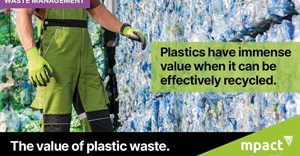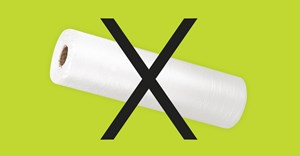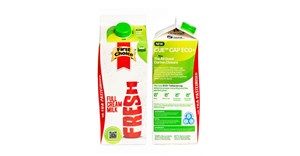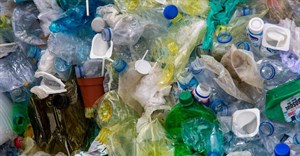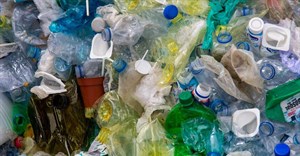Water sachet use in Ghana: how to stop the pollution

One of the many sources of pollution are plastic sachets in which drinking water is sold on the streets of Ghana. The sachet drinking water business in Ghana is big. Sachet water is packaged in 500ml polyethylene plastic bags which are heat-sealed on either end. It is a fast-growing source of drinking water in Ghana.
Known on the street as “pure water”, water in sachets is considered to be safe, hygienic and affordable. Consumed mostly by low and middle-income earners, the perception is that sachet water is of higher quality than tap water.
Sachet water is produced under the authority of Ghana’s Food and Drugs Board, which has been keen to promote the proper disposal of the plastic sachets. This is because discarded sachet bags pose serious environmental risks. They are fertile ground for mosquitoes to breed in, block drains and if they’re burnt they cause air pollution.
As a result, some water production companies carry ecological information with the words “respect the environment” and a symbol of a person depositing a sachet into a dustbin.
I conducted research to establish whether consumers pay attention to the messaging on some of the sachets. Did this “green marketing” affect their behaviour? Previous research has shown that consumers can be educated through green marketing tools such as eco-labeling, eco-branding, and environmental advertising .
I also wanted to understand how social factors such as age, gender, education and income affected people’s attitudes and use of water sachets.
The results of the study show that personal factors play a role in people’s behaviour. This includes age, income, education level, and gender.
Based on the results, it could be deduced that older people understand purchasing behaviour better. In addition, levels of education and income are positively associated with green buying behaviour. Green buying behaviour is where consumers are interested in buying products and services that are environmentally friendly while avoiding products that would harm the environment.
Despite this awareness, the problem of poor sanitation continues to be a major problem on the beach. I inferred from this that consumers continue to litter the beach because the environment is filthy.
My findings led me to recommend that a number of steps could be taken to reduce the impact of used water sachets on the environment. These included the provision of litter bins, enforcement of beach sanitation rules and regulations, and introduction of sanitation beach guards. I also recommended that there should be collaboration between regulatory bodies and the producers of sachet water to monitor improvements in labelling sachets.
Factors influencing people
I engaged with 1,589 people aged 18 and over at Labadi Pleasure Beach in Accra in 2017. Labadi beach is one of the oldest entertainment beaches in Ghana and has a serious sanitation problem. It is littered with waste materials, including sachet water bags.
I found that personal factors such as age, income, education level and gender influenced consumers’ decisions in purchasing green sachet drinking water. The older the consumer, the better he or she understood green purchasing behaviour. Older consumers said they knew about the implications of environment degradation, and most said they tried to dispose off the sachet bag in a bin.
In addition, the level of education and income were positively associated with green buying behaviour. Female consumers were also more concerned with green products.
Over 88% of those interviewed said they were aware of eco-information, that they bought eco-friendly products and read the product labels on the sachet water.
The way forward
Ghana needs to take advantage of the fact that people are environmentally conscious. It needs to do so by ensuring that environments are cleaned up. Based on the high levels of awareness on environmental issues, I believe that this will encourage people not to litter.
Several practical steps could be taken. For example, there should intensive monitoring of litter bins on the beach. Beach guards should be hired to enforce sanitation regulations. Beach authorities and producers of sachet water should collaborate to carry out sanitation exercises, and weekly or monthly cleaning exercises. And fines could be imposed for littering.
My research points to the fact that managing sanitation is possible in developing countries if the government, producers, marketers, sellers, and consumers come together towards a common goal.
This article is republished from The Conversation under a Creative Commons license. Read the original article.![]()
Source: The Conversation Africa

The Conversation Africa is an independent source of news and views from the academic and research community. Its aim is to promote better understanding of current affairs and complex issues, and allow for a better quality of public discourse and conversation.
Go to: https://theconversation.com/africaAbout Alexander Diani Kofi Preko
Alexander Diani Kofi Preko, senior lecturer, marketing, University of Professional Studies Accra



